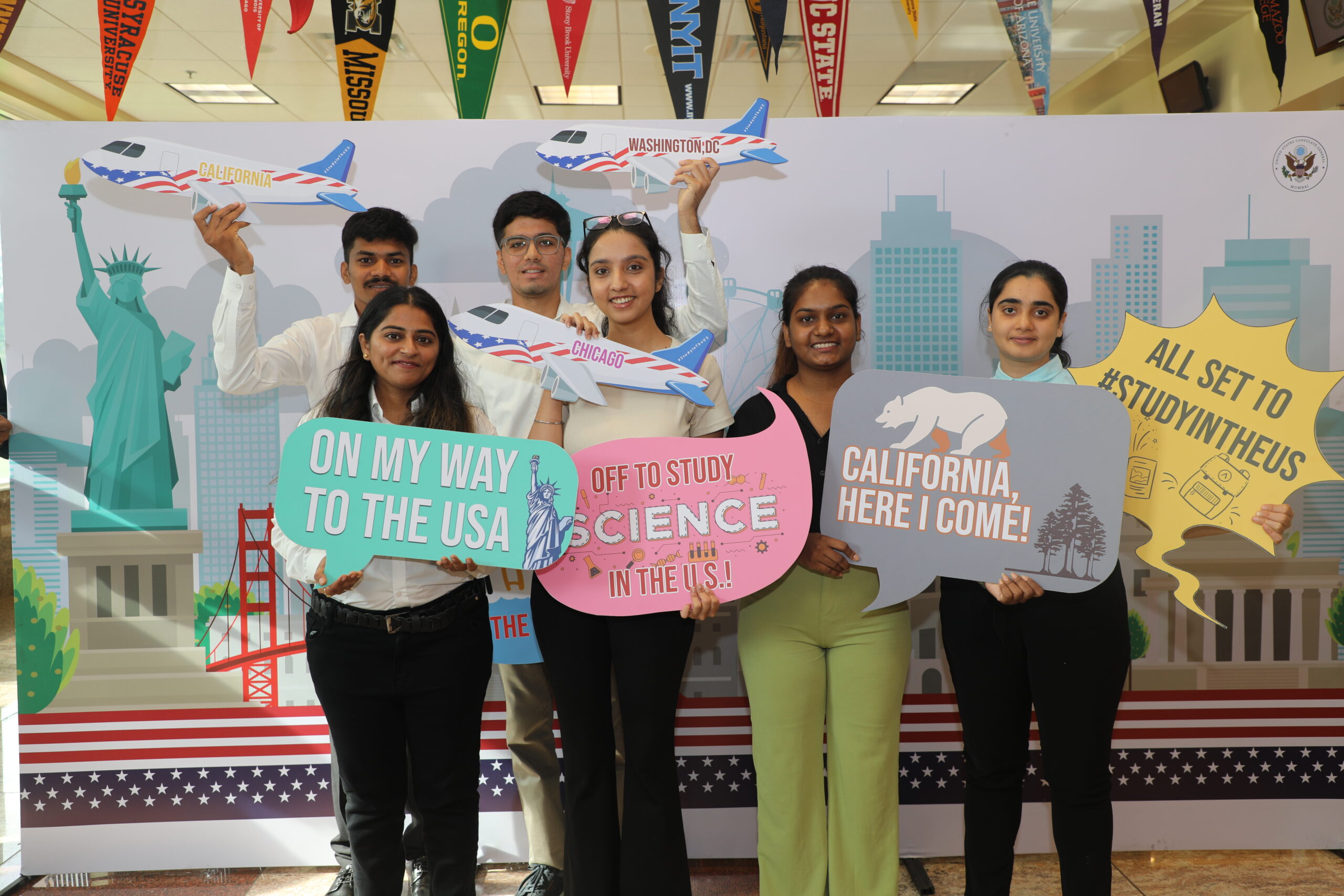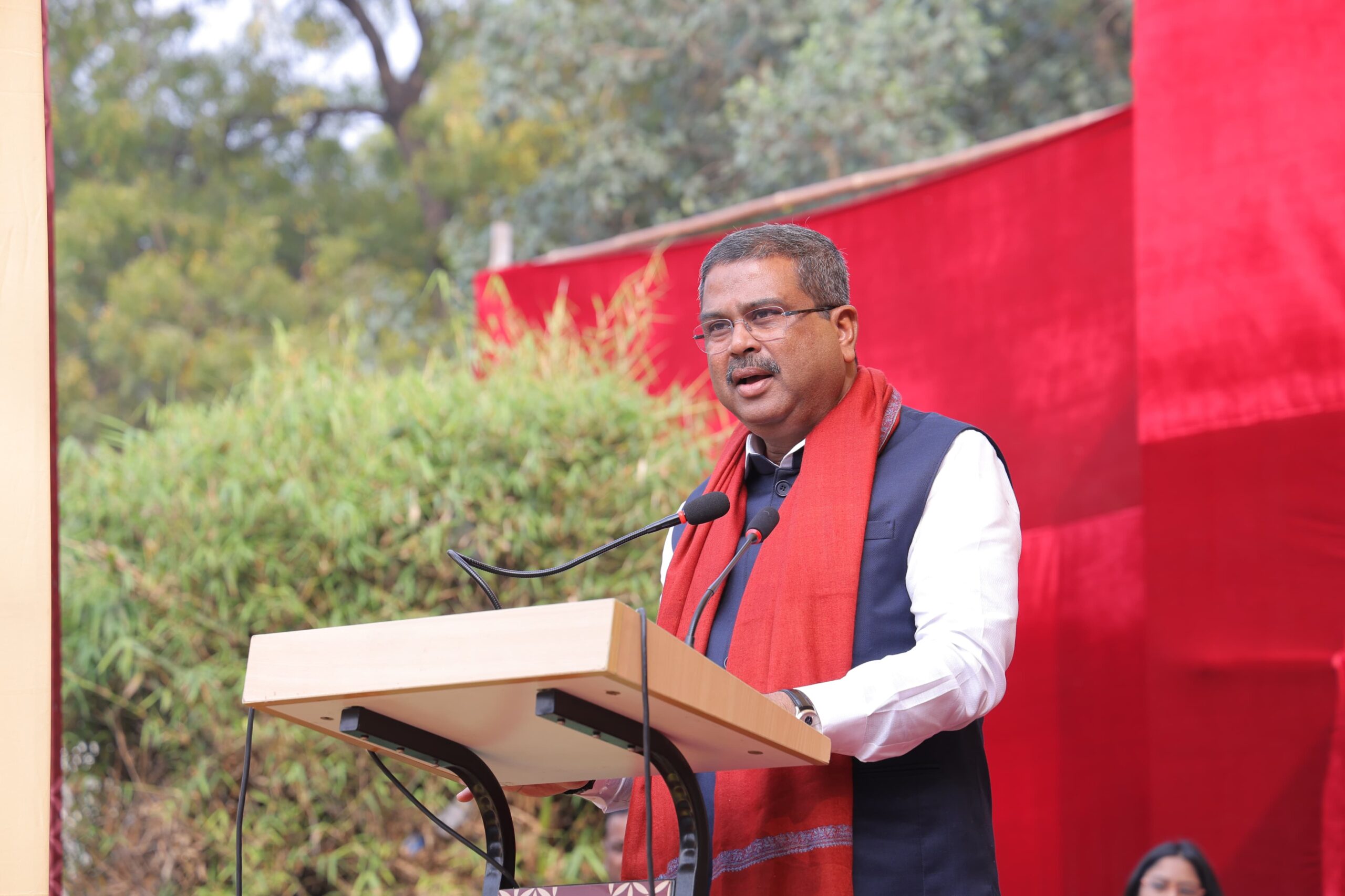“It is in the Indian DNA to enable women empowerment, not just theoretically, but also in practical terms,” said Union Minister of Education, Shri Dharmendra Pradhan at the graduation ceremony of The Vedica Scholars Programme for Women, Class of 2024. “I can say with confidence that the Vedica Scholars Class of 2024 will be the future global leaders,” he added. Leaving the scholars with a challenge for the future, he said, “Today, you’re job seekers, but I want you to become job creators in the next decade.”
Vedica is a pioneering programme for women that blends management practice, liberal arts, personal growth, and effective communication into a single, holistic curriculum. Backed by a distinguished Governing Council, including Gita Mittal (Former Chief Justice of the Jammu and Kashmir High Court), Meenakshi Gopinath (Educationist and Former Principal, Lady Shri Ram College), and Tara Singh Vachani (Managing Trustee, Max India Foundation), and a Global Advisory Council comprising renowned experts like Tiger Tyagarajan (Founding Member and Former CEO, Genpact), Joanna Barsh (Director Emeritus, McKinsey and Company), and Utsav Baijal (Partner and Head of India Private Equity, Apollo Mumbai), Vedica has emerged as a pioneering institution empowering women to advance their careers. Now in its 10th year, the programme remains committed to increasing the number of women in the workforce and supporting their continued growth and success.
Highlighting the achievements of female leaders, the Minister inspired the graduating class: “You’re graduating at a time when the President of India is Shrimati Draupadi Murmu. Coming from an economically weaker background, she was perhaps the first in her village to go to school, and she worked hard till she became the President of the largest democracy in the world. You’re graduating at a time when the budget was presented for the seventh consecutive time by Shrimati Nirmala Sitharaman.”
He also acknowledged the success of global women leaders such as Indra Nooyi, Priyanka Chopra, and Kiran Mazumdar-Shaw.
Founded by Anuradha Das Mathur and Pramath Raj Sinha in 2015, the Vedica Scholars Programme has played a pivotal role in addressing gender disparity in leadership, empowering over 800 women to date. According to several estimates, women’s participation in the workforce can have a transformative impact on India’s economy. Recognising this, the Government of India is pivoting from ‘women’s development’ to ‘women-led development’ through initiatives such as term loans up to INR 2 crore for first-time women entrepreneurs and supporting programmes that enhance access to career opportunities. Vedica’s unique approach aligns with this national priority, equipping women with multidisciplinary training and industry exposure to contribute effectively to the economy and thrive in leadership roles.
“As we mark our 10th year, Vedica remains steadfast in its mission to significantly increase the number of women in the workforce – we do this through a carefully curated management programme for women that equips them to pursue breakfree careers ,” said Anuradha Das Mathur, Founder and Dean of the Vedica Scholars Programme. “We have created an ecosystem where women are empowered with skills, mentorship, and the confidence to navigate any workplace. Our alums have a drop-out rate of less than 10% – and that is the real testament to the impact of Vedica’s approach.”
The success of Vedica’s scholars is evident in this year’s placements. Graduates from the current batch have secured roles at leading firms such as Aditya Birla Capital, KPMG, Zomato, and MakeMyTrip, with the highest annual package reaching 20 lakhs. Scholars from diverse backgrounds join industries spanning consulting, technology, finance, and social enterprises, reflecting the programme’s capability to unlock varied career paths. Upon graduation, they emerge with versatile skillsets, poised to thrive in the dynamic work environment.
Beyond academic rigour, Vedica nurtures real-world exposure through initiatives like the ‘Shadow a Woman Leader’ module. This module pairs scholars with senior women leaders from top companies, including McKinsey, Coca Cola, Airtel Payments Bank, and Godrej Capital, providing invaluable mentorship. The institution also places strong emphasis on confidence, communication excellence, and career navigation, ensuring scholars are equipped to lead in dynamic work environments.
As Vedica enters its second decade, it has an audacious mission – to ensure women can pursue break-free careers. By continuously adapting to the changing workforce landscape and deepening its industry partnerships, Vedica is poised to expand its impact and drive lasting change in gender representation across leadership roles.
About Vedica
The Vedica Scholars Programme for Women is an 18-month full-time, residential management and leadership program in Delhi, India, designed to prepare women for successful professional careers. More than just an academic course, Vedica is a transformative journey that equips women with confidence, critical thinking, and a lifelong network to lead with impact and purpose.


 Opinion3 years ago
Opinion3 years ago
 Entertainment8 years ago
Entertainment8 years ago
 Entertainment8 years ago
Entertainment8 years ago
 Fashion8 years ago
Fashion8 years ago
 Opinion3 years ago
Opinion3 years ago
 Politics8 years ago
Politics8 years ago
 Entertainment8 years ago
Entertainment8 years ago
 Entertainment8 years ago
Entertainment8 years ago





















